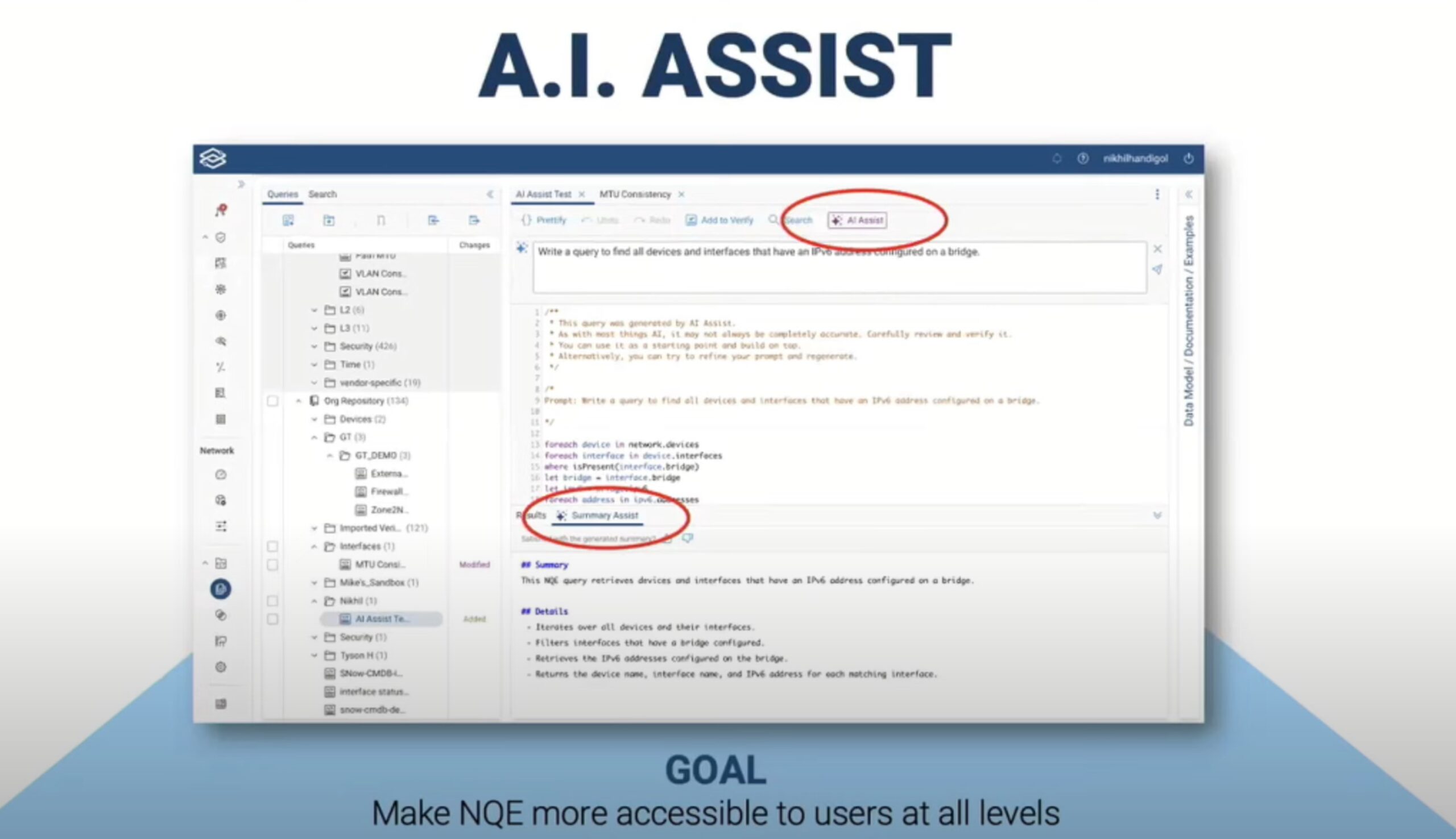There is no second-guessing that nearly every networking vendor is going to have some form of AI in its next version of code. It’s the buzzword of the year, and makes for a great marketing slide. There are some data privacy concerns however, that come with it.
AI Needs Your Data
AI runs on data. Large sets of training data are fed into AI engines every minute. The engines process this data to make decisions and give back responses. In a perfect academic world, the data would come from freely available sources. But coming from anywhere, that data is too generic.
To really shine, AI engines need to look at data specific to the task at hand. If that task is to make decisions about a company’s internal infrastructure for example, the engine will want data from the infrastructure.
With such data, security and compliance are a real concern. Handing internal data over to third-party for analysis is a contractual and legal nightmare. However, that is not to say that a vendor has to abandon their AI-based solution entirely.
To make sure that data privacy does not get in the way of vendors providing good AI help to customers, Forward Networks has introduced AI Assist. AI Assist provides AI-based assistance without processing organizations’ private data.
AI Can Help Without Having It All
By now, most network engineers have played around with ChatGPT for help with tasks like generating Python code, or Ansible playbooks. When a user types in a prompt as these, the answer is based on available and non-customer-specific data. No critical infrastructure data is used to generate that Python code. It comes from documents and examples of modules that are out there on the Internet.
A clever strategy to get around the data privacy problem is to shrink the scope of the model, like Forward Networks is doing with Forward Enterprise, via NQE.

Helpful without Being Invasive
The Network Query Engine (NQE) is the interface between the user and the data in the Forward Enterprise digital twin. A very powerful platform on its own, the NQE comes with pre-built sets of common queries that administrators can top off with their own. As users dive deeper into their own data, the NQE queries can start to get out of hand.
AI Assist is that new feature that allows users to generate NQE queries using plain language. Simply ask AI Assist for the information you want, and it will give back an NQE query that will pull that out of the digital twin. The platform is not running that query but simply providing it for the user to execute, tweak, or file away.
According to Nikhil Handigol, Co-Founder of Forward Networks, “Before NQE, tasks that used to take weeks or months came down to an hour; it’s down to seconds now with AI Assist.”
AI Assist also provides a feature called Summary Assist. Summary Assist takes an NQE query as input and generates a natural language summary of the information it is asking for. Neither AI Assist or Summary Assist accesses the user’s infrastructure or its data. The user’s digital twin data stays in their Enterprise platform where it belongs.
Conclusion
AI is here and will be around for the foreseeable future. It makes for a fairly tricky landscape when companies have to weigh the benefits of its use vs the potential risks of revealing the data. The dataset used by AI engines can be limited to exclude the deep secrets and sensitive data while still being used to provide a benefit to its users.
Assist AI and Summary Assist from Forward Networks uses this strategy while still being able to significantly improve a company’s use of the Network Query Engine. The infrastructure data – the inventory, the paths, the configs – never leaves the Forward Enterprise platform. This is a refreshing change from the way that AI is typically perceived. It does not actually need every piece of data in the world to be effective.
For more information, head to the Forward Networks website or watch their presentations from the Networking Field Day event on the Tech Field Day website or YouTube channel.

